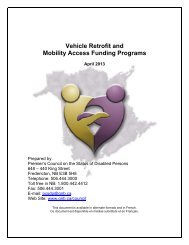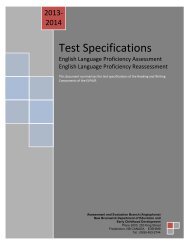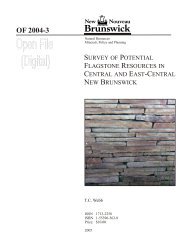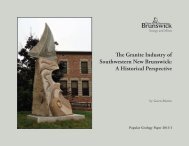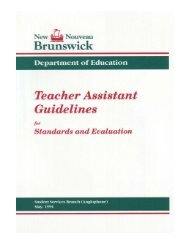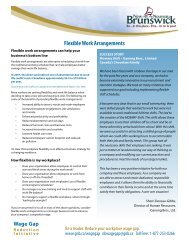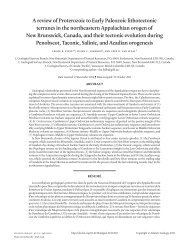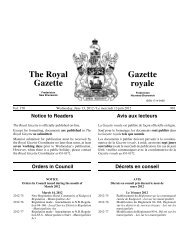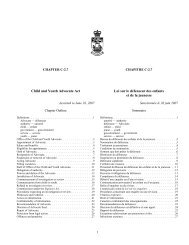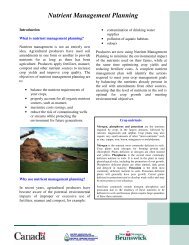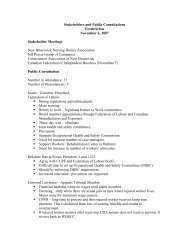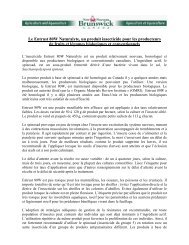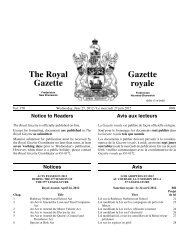Reading and Writing Achievement Standards Curriculum
Reading and Writing Achievement Standards Curriculum
Reading and Writing Achievement Standards Curriculum
Create successful ePaper yourself
Turn your PDF publications into a flip-book with our unique Google optimized e-Paper software.
Comprehension Responses<br />
Appropriate <strong>Achievement</strong><br />
Sample Questions/Tasks<br />
The following types of questions/tasks may be used to assess students’<br />
comprehension.<br />
Literal Response<br />
• Skim this part to find ___ (information/topic) <strong>and</strong> tell me about it.<br />
• Find the part that tells ___<br />
• What happened in the story? Tell about the events in the order they happened.<br />
• Tell about the important parts of the story in your own words.<br />
• What lesson do you think the author wants us to learn?<br />
• What did the author tell you about (topic)?<br />
Comprehension<br />
Responses<br />
Strong <strong>Achievement</strong><br />
Students demonstrating strong<br />
achievement respond to<br />
questions/tasks described at the<br />
appropriate level with overall<br />
accuracy. They also<br />
• read some longer texts <strong>and</strong><br />
therefore must search for<br />
information in a variety of<br />
places<br />
Inferential/Interpretive Response<br />
• What can you tell me about ____ (name of character)? How do you know that?<br />
• Why do you think (character) acted this way? What information helps you to know that?<br />
• What happened at the end of the experiment? What caused that?<br />
• How are schools today different from schools of long ago? How are they the same?<br />
• What does this word mean? How do you know?<br />
• What does this expression mean? (i.e., simile or idiom)<br />
• Show me the glossary. How can you use it to help you underst<strong>and</strong> what you are<br />
reading?<br />
• What can you learn from this diagram?<br />
• provide responses that go<br />
beyond the obvious <strong>and</strong><br />
support these with textual<br />
details<br />
Personal/Critical/Evaluative Response<br />
• Do any of the characters remind you of anyone you know? How?<br />
• Have you heard information like this before? Where?<br />
• Do you like the way this story ends? Why or why not?<br />
• Did you find this book interesting? Why or why not?<br />
• Why do you think the author used these descriptive words? How do they help you when<br />
you read?<br />
• What did the author do to help you learn about (topic)? Did the author do a good job?<br />
Why or why not?<br />
• Do you agree with the author? Is this (idea from book) always true?<br />
• How would the story be different if the main character was ___ (e.g., an adult instead of<br />
a child)?<br />
• Is this book fact or fiction? How can you tell?<br />
• Why is it important to have the steps in order?<br />
• How can you find the important information on this page?<br />
• Why do you think the author told us about whales in an information book instead of in a<br />
story? What do you notice about how this report is organized? How does that help<br />
you?<br />
• support opinions with<br />
textual examples <strong>and</strong><br />
personal<br />
experience/knowledge<br />
<strong>Achievement</strong> St<strong>and</strong>ards End of Grade 3 9



